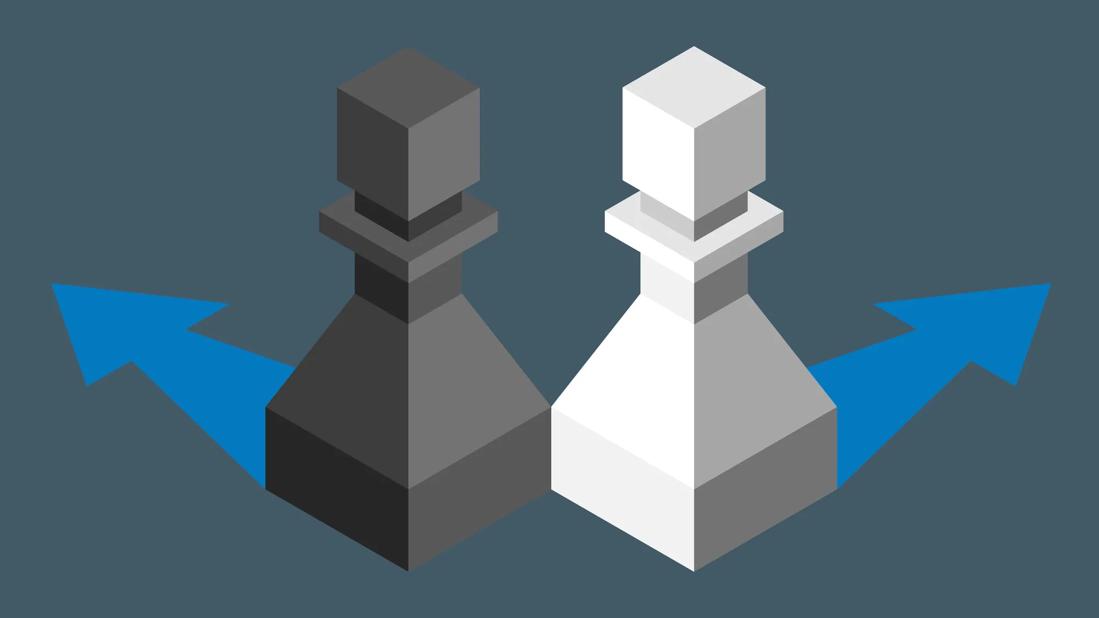If you’re torn between contradictory beliefs, questioning your decisions or feeling ashamed about your choices, you may be experiencing cognitive dissonance

Cognitive dissonance is a state of psychological discomfort you experience when you hold on to two or more conflicting beliefs or values, or when your actions contradict those beliefs.
Advertisement
Cleveland Clinic is a non-profit academic medical center. Advertising on our site helps support our mission. We do not endorse non-Cleveland Clinic products or services. Policy
Cognitive dissonance involves feelings of discomfort, angst, guilt or shame in response to the decisions you’re making or the beliefs you’re questioning. And it can occur with a wide range of behaviors and beliefs, like quitting smoking, eating healthier or defining your intentions.
“When you’re consistently making choices that go against your beliefs, it can cause a lot of stress and unhappiness,” says psychologist Kia-Rai Prewitt, PhD. “You’re feeling this discomfort because you’re trying to figure it out and actively work through this conflict.”
This psychological phenomenon can have a direct impact on you and your relationships. Here are some examples of how cognitive dissonance can play out.
Health and wellness
Advertisement
Relationships
Regretting decisions
Work
Ethics
“Sometimes, you may decide to do something that goes against a strongly held belief because of cognitive flexibility or because the behavior has low risk,” notes Dr. Prewitt. “In some situations, someone may not always have the opportunity to make a decision that aligns with their values.”
Cognitive dissonance creates a lot of discomfort and doubt. It can feel very similar to anxiety and stress. You may be experiencing cognitive dissonance if you:
Advertisement
“If you feel you have to justify those actions in order to be OK with them, or you’re carrying around guilt because of what you did, those are signs you’re having cognitive dissonance,” says Dr. Prewitt.
This psychological phenomenon can occur for several reasons, but perhaps some of the most common causes include:
“You’re more likely to feel guilty or upset if you’re doing something that goes against your values,” reiterates Dr. Prewitt.
When you’re caught between conflicting ideas or behaviors, there are ways to minimize the impact of cognitive dissonance. You can:
“As young people evolve into adulthood, they often question what gives them meaning,” reflects Dr. Prewitt. “As they gain more independence, they might realize some of the beliefs they developed during childhood could be holding them back, so they start reevaluating.”
Advertisement
But cognitive dissonance isn’t always a bad thing. If you’re feeling discomfort about your actions or beliefs, it may be a sign that you need to check in with yourself.
Bottom line? Everyone experiences cognitive dissonance at some point in their lives. What matters is how you respond to it. You can think of cognitive dissonance like a crossroad — what you decide to do with those conflicting beliefs and behaviors will determine where you’re headed next and who you want to be.
Advertisement
Learn more about our editorial process.
Advertisement

Burnout is often driven by long periods of stress without time to recover — but practicing self-care and creating work/life boundaries can help

This theory of human motivation says people seek to meet their needs in a predictable order

This trendy practice may boost your physical and mental health — but done incorrectly, it could make things worse

Only some people experience autonomous sensory meridian responses, but it can be beneficial to those who do

You can address negative thinking by reframing the situation, asking for help when you’re stuck and giving yourself some grace

The power of positive thinking can influence your physical, mental and emotional health

Speaking, thinking or writing these affirming statements can help boost confidence, reduce anxiety and overcome self-doubt

The five phases of loss are denial, bargaining, anger, depression and acceptance — but they don’t always happen in that order

The tropical fruit is a good source of antioxidants and vitamin C

Most people fall asleep within 10 to 20 minutes, but if your experience is different, adjusting your sleep schedule may help

Exploring your hidden side can lead to better understanding of what makes you tick